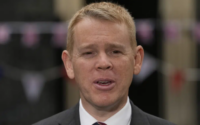The declining attraction of consensus politics 2023
Argentina’s problems have long been attributed to self-serving politicians who bicker. Presidents, party bosses, clerics, military men, business tycoons, trade union bosses, and worried citizens have repeatedly demanded that they put aside their petty differences and work together to get Argentina out of its decades-long rut.
On occasion, governments have urged well-known members of the most significant business sectors to create the illusive “great national agreement” to save the country from its impending doom.
All such attempts—and there have been many—have failed. Most round-table members believed in a “great national agreement” that already existed. The supporters of Juan Domingo Perón gave Argentine politics its final character about a century ago.
“For Argentines, Peronism is simply common sense.” This makes it harder than most people realize to change the mindset that got the country where it is now. Most political elite members would have to abandon long-held beliefs, as many did when communism and fascism fell.

The Peronist and Thatcherite opposition coalition
While some assume that if a reformist government takes office in December, it will need the support of an overwhelming majority of legislators, others believe that, for anything useful to be done, a strong-minded minority willing to oppose the populist consensus will have to win power and use it before defenders of the old order recover from the electoral pummelling that appears to await them.
The Buenos Aires City Mayor, Horacio Rodríguez Larreta, dominated the contest for Argentina’s next president until recently. Patricia Bullrich, from the same party, is his opponent.
Former president Mauricio Macri blamed his 2019 defeat on his “gradualist” approach to the economic crisis. She is leading in the polls because people think she is tougher than Rodríguez Larreta and will smash skulls to wake up Argentina.
Ms Bullrich resembles Margaret Thatcher, who when in office in a country in trouble, sternly insisted on doing whatever she thought was necessary to get it out of the mire without worrying too much about her critics, while Rodríguez Larreta is more like one of the soft-hearted Tory “wets” who were unwilling to move away from the friendly political centre where they felt at home.
In most countries, these two wings of the Juntos por el Cambio (“Together for Change”) coalition would be unlikely bedfellows, but they are united by their hatred of Kirchnerite Peronism, which they and many others believe is not only corrupt and incompetent but also totalitarian and could do to Argentina what Chavismo has done to Venezuela by tu
Rodriguez Larreta angered several Juntos por el Cambio members by suggesting it allow Juan Schiaretti, the outgoing Peronist governor of Córdoba Province, who opposes Kirchnerites.
Schiaretti, a foxy old-style politico, was quick to say he was not interested, but he knew it was too late to mitigate the damage caused by an offer many believe could prevent opposition candidates from performing well in the upcoming provincial elections.



